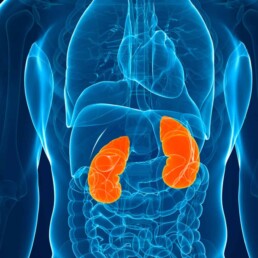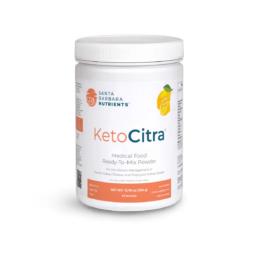As we delve deep into countless medical journals to uncover the latest on Integrative Medicine’s approach to kidney health, we are always reminded of the value of your time. Our commitment remains steadfast in curating and succinctly summarizing these vital studies for you. Welcome to the October Research and News.

Blood Protein Markers Link Potassium Intake to Kidney Disease Risk
This large prospective study from the ARIC cohort examined how dietary potassium relates to plasma proteins and subsequent CKD risk.
Among 10,194 participants with proteomic data, researchers identified 85 proteins associated with potassium intake, many of which are involved in iron metabolism, mitochondrial function, fibrosis, and immune response.
Some proteins were connected with higher CKD risk when potassium was low, while others showed protective effects when potassium was higher.
Over 21 years, people with protein profiles indicating higher potassium intake had a lower risk of developing CKD, with a 13% reduction explained by six key proteins.
Why is this important?
This study bridges the gap between diet and kidney biology by identifying proteins that may mediate the kidney-protective effects of potassium. Beyond dietary questionnaires, proteomic markers provide objective insights into nutrient intake and its biological consequences.
Understanding these protein pathways highlights mechanisms, such as mitochondrial function and fibrosis, that can be targeted for early CKD prevention and precision nutrition strategies.
Early Kidney RAAS Changes Precede Hypertension in ADPKD
This study evaluated cardiovascular autonomic control in young, normotensive patients with autosomal dominant polycystic kidney disease (ADPKD) before the onset of hypertension or kidney dysfunction.
Eighteen patients with ADPKD and 19 healthy controls were assessed for heart rate variability, blood pressure variability, baroreflex sensitivity, and cardiovascular responses to sympathetic stimulation, along with blood and urine biomarkers.
Autonomic function, inflammatory, and endothelial markers were similar between groups, regardless of disease progression status. However, ADPKD patients had significantly higher urinary angiotensinogen (AGT) and albumin levels, suggesting early intrarenal renin-angiotensin-aldosterone system (RAAS) activation.
Why is this important?
The findings indicate that hypertension in ADPKD may not stem from early autonomic, inflammatory, or systemic endothelial dysfunction, but rather from localized intrarenal RAAS activation.
Detecting and targeting this mechanism early could help delay hypertension onset, a key driver of kidney function decline in ADPKD.
Risk of Diabetes in Individuals with Kidney Stones
This large prospective cohort study of more than 260,000 participants from the Health Professionals Follow-Up Study and Nurses’ Health Studies I and II found that individuals with a history of kidney stones had a significantly higher risk of developing new-onset diabetes compared with those without stones.
The association remained robust after adjusting for demographics, comorbidities, and diet, with a pooled hazard ratio of 1.27 (95% CI, 1.23–1.32; P < 0.001).
Notably, the increased diabetes risk was present even among participants who never used thiazide diuretics, suggesting that the link is not solely due to medication effects. In reverse analyses, diabetes was also associated with a higher risk of incident kidney stones in women.
Why is this important?
This study highlights a bidirectional relationship between kidney stones and diabetes, reinforcing that kidney stones are not merely a localized urologic condition but part of a broader metabolic disorder.
Since kidney stone formers are at greater risk of metabolic syndrome and cardiovascular disease, early screening for insulin resistance and metabolic risk factors should be considered in this population. These findings suggest that lifestyle and metabolic interventions could help reduce both diabetes and stone recurrence risk, improving long-term outcomes.
Join us to end the kidney disease epidemic
Lubiprostone Improves Kidney Outcomes by Modulating the Gut Microbiome and Mitochondrial Function in CKD
This phase 2 randomized, placebo-controlled trial (150 patients with stage IIIb–IV CKD, 24 weeks) investigated the effects of lubiprostone, a chloride channel activator commonly used for constipation, on kidney outcomes.
While lubiprostone did not reduce circulating uremic toxins like indoxyl sulfate, patients receiving 16 µg showed preserved kidney function with a slower decline in eGFR compared to placebo.
Multiomics analysis revealed that lubiprostone reshaped the gut microbial agmatine pathway, leading to increased levels of the polyamine spermidine —a metabolite known to enhance mitochondrial health. This microbiome–metabolite interaction improved renal mitochondrial function, suggesting a novel gut–kidney protective mechanism. Lubiprostone was well-tolerated, with only mild gastrointestinal side effects.
Why is this important?
This study provides direct clinical evidence that targeting the gut microbiome can influence the progression of kidney disease. By modulating microbial pathways and boosting protective metabolites like spermidine, lubiprostone preserved kidney function in moderate-to-severe CKD.
The findings highlight how gut–microbiome–mitochondria crosstalk can be leveraged as a therapeutic strategy, supporting the broader concept that microbiome-targeted therapies may slow CKD progression beyond conventional approaches.
Gut-Derived Metabolites and Risk of Albuminuria in a Multi-Ethnic U.S. Cohort
This large prospective cohort study (6,723 adults, median follow-up 15.7 years) from the Multi-Ethnic Study of Atherosclerosis investigated the relationship between gut microbiota–derived metabolites (TMAO, γ-butyrobetaine, crotonobetaine, carnitine, choline, and betaine) and the development of albuminuria, a key early marker of kidney damage.
Higher plasma levels of TMAO and related metabolites were significantly associated with both the incidence and progression of albuminuria.
Participants in the highest quintile of TMAO had a 41% higher risk of developing albuminuria and nearly double the rate of UACR increase compared to those in the lowest quintile.
Choline, carnitine, and other TMAO precursors also showed consistent associations with worsening albuminuria outcomes.
Why is this important?
These findings provide strong human evidence that gut microbiome–derived metabolites, particularly TMAO, play a causal role in kidney injury. Since TMAO is generated through the metabolism of dietary nutrients such as choline and carnitine by gut microbes, this study highlights the gut–kidney axis as a modifiable therapeutic target.
Interventions aimed at reducing TMAO production, through dietary modification, microbiome-directed therapies, or enzyme inhibitors, may represent a novel strategy to slow the onset and progression of chronic kidney disease.
Review article of the month
Pathophysiology of Cognitive Impairment in Chronic Kidney Disease
This review explores the complex mechanisms underlying cognitive impairment (CI) in chronic kidney disease (CKD), a growing and disabling complication in aging populations.
Evidence shows that CKD-related CI arises from multiple interconnected pathways, including vascular dysfunction, systemic inflammation, blood-brain barrier disruption, uremic toxin accumulation, hormonal dysregulation, glymphatic system impairment, and gut-brain axis alterations.
Additional factors such as mental health disorders, sarcopenia, sleep disturbances, and dialysis therapies further contribute to cognitive decline. Advances in biomarkers and recognition of protective factors like Klotho may help refine diagnosis and guide new therapies.
Overall, CI in CKD reflects a convergence of systemic and neural insults, suggesting that future interventions should focus on improving vascular and metabolic health, reducing uremic burden, and enhancing neuroresilience to preserve cognition in CKD patients.
Join here to receive FREE monthly updates on the latest research in Integrative Nephrology and tips on managing kidney disease straight to your inbox.
We would love to hear your feedback. Let us know what you think of these educational materials and if you would like us to focus on specific topics. Please email us at info@inkidney.com.








